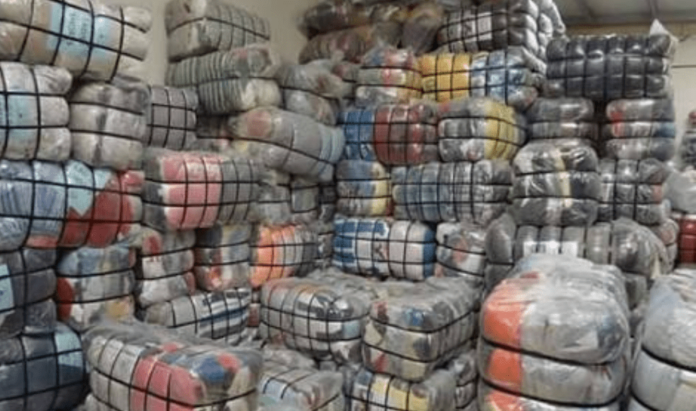Kenyan traders spent about Sh. 28 billion on second-hand clothes in the year to March, indicating a rise in demand for used attire. This was a blow to President William Ruto’s policy aimed at marketing industries on local textile works.
During the 12 months under review, the import rise for mitumba grew by a third to Sh. 27.82 billion, the latest data on trade collected by Kenya National Bureau Of Statistics shows.
Higher quality and relatively lower prices for secondhand attires continue to push demand for the merchandise at the expense of locally made clothes amid higher margins enjoyed by traders largely in the informal markets.
The lucrative second-hand clothing sector, for instance, has also witnessed traders from China, a key source market for the merchandise, opening shops in Gikomba – Kenya’s largest informal market for second-hand goods.
“The number of people getting into this business is increasing every day. This is because the capital required is very small, but it requires you to be self-driven to be in this trade and succeed,” Teresia Wairimu, chairperson of Mitumba Consortium Association of Kenya, said on the phone.
According to KNBS data, the volume of used clothes shipments by traders and households went up by 14.53% to 206,580 tonnes in the year ended March from 180,367 tonnes for a similar period a year earlier.
Higher importation of used clothes is another blow to the Ruto administration, to which garments and textiles form part of the sectors listed as key with ‘huge untapped potential of employing thousands of Kenyans’, besides earning the country foreign exchange in exports.
How you can make more money from your mitumba business
“However, the sector is confronted by numerous challenges including the high cost of labor and low agricultural productivity that hampers the competitiveness of Kenya’s garment export,” said the Treasury in the 2024 Budget Policy Statement (BPS).
This increase in imports of secondhand clothes for resale was at a time when exports were banned.
Three members of the 27-nation European Union, in line with the Basel Convention on the Control of Transboundary Movements of Hazardous Wastes and their Disposal, banned exports.
Kenya hastily withdrew in May 2017 from a collective East African Community bloc’s resolution to ban Mitumba after American suppliers threatened to match it with retaliatory action.









